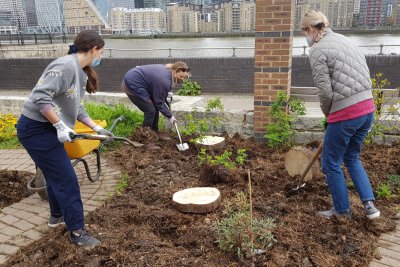Urban green spaces could be used to grow eight times more fruit and veg for the UK
A new report from Lancaster University has found that the UK could grow nearly 40% of its current demand for fruit and vegetables if we made better use of our urban green spaces, like the community gardens in Sustain’s Good to Grow Network.

Currently only 1% of urban green spaces in the UK, like the community gardens in the Good to Grow Network, are used for food production. A new report published by Lancaster University has found that if we made better use of these spaces, the UK could grow a whopping eight times more fruit and vegetables.
This extra production could provide 38% of the fruit and vegetables currently eaten in the UK, reducing the need for imports. This would make our food supply more secure, more resilient, and would improve access to fresh fruit and vegetables for people living in and around cities.
The authors of the report said: "This study highlights that national policies can be suitably developed to support urban agriculture and that making use of urban green spaces for food production could help to enhance the resilience of the national-scale food system to shocks in import pathways, or disruptions to domestic production and distribution."
Gareth Roberts of Regather and ShefFood said: "The report adds further useful insight and understanding to the critically important development of urban and peri-urban food production in the UK. Like many sites of revolutionary thought and action, the UK urban and peri-urban 'good food' movement is rising to this challenge. More power to their collective elbow I say, and let us be the change we want to see."
Whilst the researchers don’t recommend we dig up everyone’s parks and back gardens, this report shows the scale of the opportunity available in towns and cities across the country. It’s time to put urban veg back on the menu.
31/01/2022


